‘A person goes to collective prayer in nice clean clothes, takes a package, and goes home’
17 places for the slaughter of animals prepared for the feast of the sacrifice in Kazan
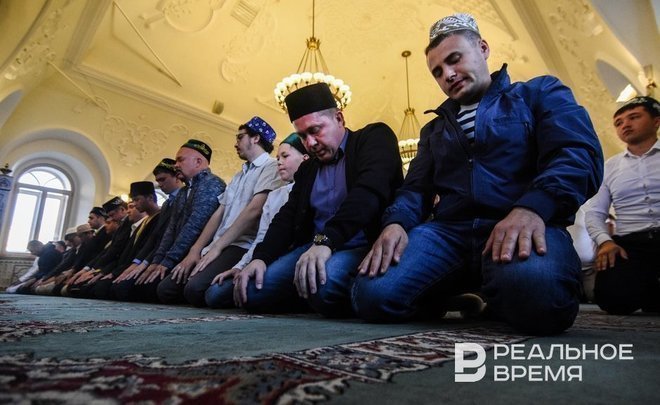
On 28 June, the Muslims celebrated Eid al-Adha, the feast of the sacrifice. On this day, festive prayers were held in all mosques of the republic. After them, the rites of sacrifice began in specially designated places. How much it costs to sacrifice a lamb this year and from where the animals are taken for slaughter — read more in the material of Realnoe Vremya.
“We provide sacrificial lambs to nearby cities and districts”
The farm of one of the largest sheep breeders of the republic, Yavdat Fattakhov from the village of Novoe Akhmetovo, Sarmanovsky district, has about 500 heads of animals. According to rough estimates of the farmer, the sacrifice takes about 200 heads this year.
“The process has long been adjusted. Every year, we provide sacrificial lambs to nearby cities and districts, including Naberezhnye Chelny, Almetyevsk, and others. We accept orders, we ourselves carry out the rite of sacrifice, and we ourselves divide the meat into packages. It remains just to pick it up. Our farm closely cooperates with mosques and mukhtasibats," Fattakhov said.
In the farm of Nikolay Shernikov from the village of Yegorkino, Nurlatsky district, the sales volumes of sheep on Eid al-Adha are not so large. For these purposes, 60 heads were purchased from the farmer:
“We decided not to inflate the price. Buyers took lambs one or two at a time, some 5-10, perhaps, they will be resold further for a different price. I don't know that. For the animals that we prepare for sale in Eid al-Adha, we create special conditions, they are kept separately from others and their care is better.”
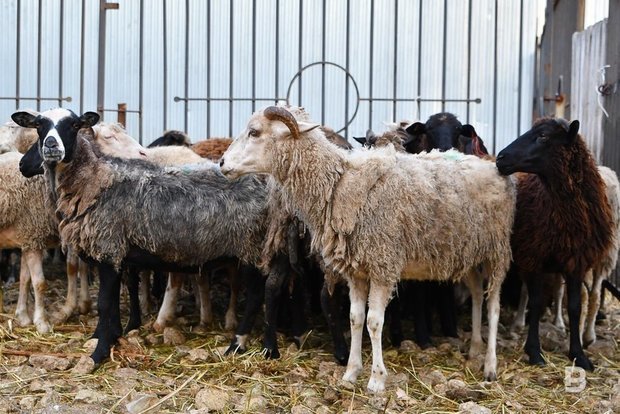
There are 3 hectares of land in the Shernikov farm, there is land in the forest for pastures — this is another 112 hectares. The farm has operated since 2011. Two years ago, we started to keep the Romanov breed. Now the farm has about 600 heads together with lambs, youngster, including 300 dams.
“We tried to breed pigs, then cows, milked milk. We also tried fattening cattle, then we started sheep, at one time we were engaged in everything at the same time. Then at one point we got tired and settled on sheep. It's easier with them: you don't need to tie them, you don't need to milk them either. Recently, we've started working with the Romanov breed, it is more prolific. We want to develop. But we need state support for the development of sheep breeding. Yes, there are programmes, but the “entrance ticket” is too expensive. It is necessary to have a lot of things to apply for a grant. It would be great if government agencies review these parameters. There are plenty of people willing to work on the land, but it is impossible to break through to get support. Besides, it is difficult to rent land, because there are only investors around, they have already seized everything for a long time. But it is impossible to work without land," the farmer explained.
Tatarstan farmers who accept orders for sacrificial lambs have different prices. On average, animals are sold for 250-300 rubles per kilogramme of live weight, the cost of the slaughter service is paid separately.
“We convince the parishioners that it is better to leave two-thirds of the meat to the needy”
In the republic, Zakyat Foundation under the Muslims Spiritual Board of of the Republic of Tatarstan provides the service every year — anyone can order the slaughter of a sacrificial animal. The meat is distributed to the needy. This was told by the general director of the foundation, Bulat Mardanov:
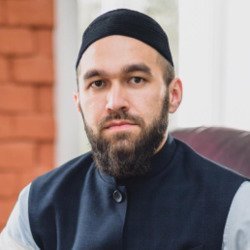
According to Bulat Mardanov, the foundation works with the same trusted suppliers: “We are provided with animals for sacrifice by farmers with whom cooperation has long been established, there are about a dozen of them. The animals are carefully checked by veterinary services. Farms are located near Kazan, as the speed of delivery is also important here. The slaughter of animals takes place on the territory of the same farms, for this they have special places. We distribute the meat right on the day of the sacrifice, so the distance is of great importance. Cooperation has been established with the sheep farms of Pestrechinsky, Zelenodolsky, and other nearby districts.”
According to Mardanov, there were cases in past years when the number of animals for sacrifice reached one and a half thousand heads, a sponsor was found for this.
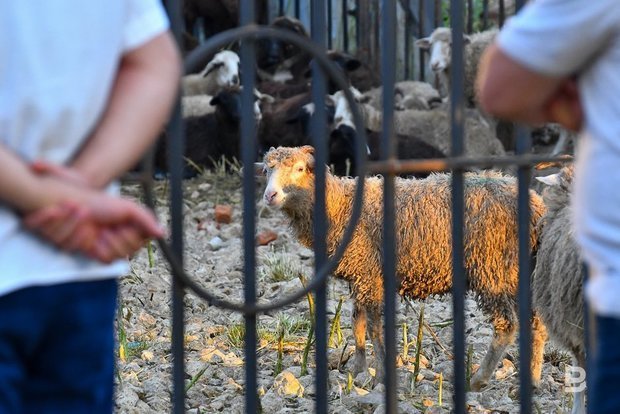
“Every year farmers bring about a thousand heads of animals. They are taken by both the hazrats of mosques and ordinary people. Zakyat Foundation also buys from the same farmers. We collect money from customers and give it to farms. They themselves carry out the rite of slaughter, divide the meat, put it in packages. We just take the finished packages and distribute them here," said the head of the foundation.
“People get used to comfort quickly”
Abbyas khazrat Shlyaposhnikov, the imam of the mosque of the Pestrechinsky district, told how preparations went for the feast of the sacrifice in their municipality:
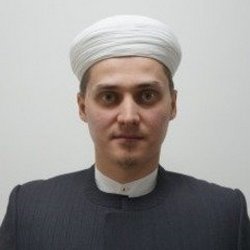
There are three places for sacrifice organised in the Pestrechinsky district: in Pestretsy itself, Gildeevo, and Staroye Shigaleevo. First, the animals are brought into a pen, then into a special place for slaughter, then the carcass is divided, and the meat is laid out in packages, the bio-waste is disposed of in special bio-pits. The customer just picks up the meat.
“A person gets used to comfort and an established process very quickly. In Pestretsy, many people live in apartments, it is difficult for them to sacrifice animals on their own, as it can be done in villages. Therefore, we consulted with the elders and decided to organise everything ourselves: we chose a special place for slaughter, made a canopy, poured concrete, made a pen. All sanitary regulations and standards are observed here. Now people call themselves and ask: “Khazrat, Eid al-Adha is approaching, please leave me one lamb.” A person goes to the collective prayer in nice clean clothes, then comes to the place of slaughter, takes a bag of meat, and goes home in the same clean clothes — the whole process is organised," explained Abbyas Shlyaposhnikov.
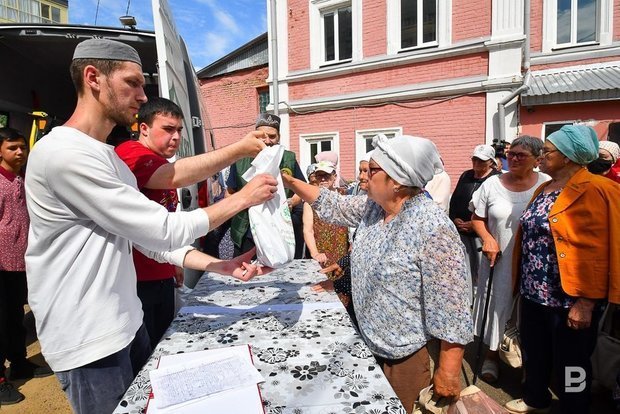
Nisab size
Eid al-Adha is celebrated annually on the 10th day of the month of Dhu al-Hijja — this year the date fell on June 28. By a unanimous decision of the Council of Qadis and the Council of Ulema of the Muslim Spiritual Board of the Republic of Tatarstan, the amount of nisab for performing qurban this year is set at 36 thousand rubles. Qurban nisab means funds that are free, minus debts and necessary expenses, the possession of which makes it obligatory for a Muslim to perform a sacrifice on the days of the qurban, that is, a Muslim is obliged to perform a sacrifice if he has 36 thousand rubles available, minus debts and mandatory expenses.
In Kazan, the slaughter of sacrificial animals continues until 8:32 pm (before sunset) on June 30. Slaughterhouses are organised in 17 specially designated places.